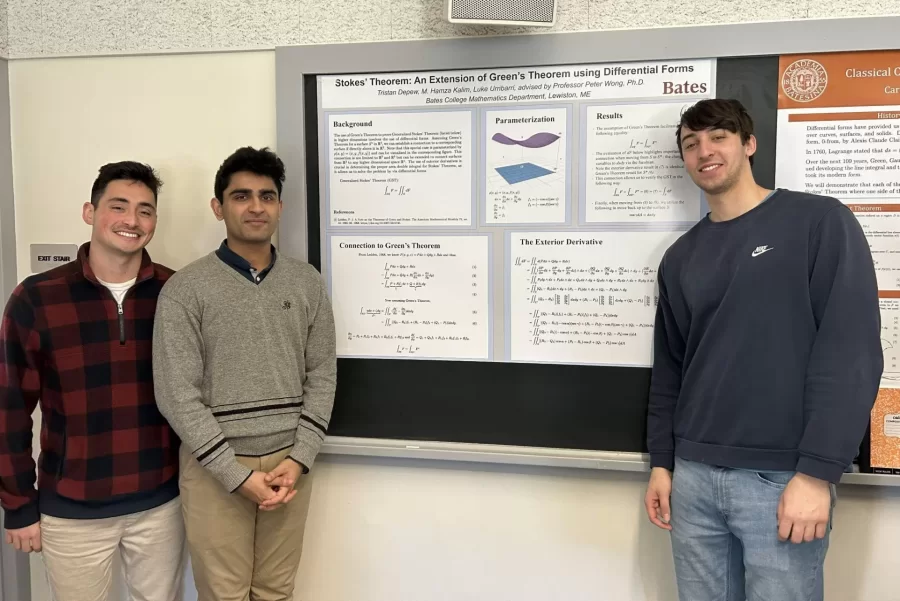Senior Seminar Information (Class of 2025)

Both senior seminar and senior thesis satisfy the Bates W3 writing requirement and highlight mathematical research, presentation, writing, and group collaboration. Senior seminar is a good choice for students wanting to improve all these, with special emphasis on presentation and group collaboration. Senior seminars also involve writing, as well as mathematical research on topics curated by the instructor.
For the 2024-2025 academic year, the senior seminar topics are Generalized Stokes Theorem and Introduction to Computational Topology.
To ensure the senior seminar is an enriching experience, the math department keeps class sizes relatively small and even. To help the department place students into senior seminars, each junior math major who would like to take a senior seminar completes a request form by NOON on the last day of Winter Semester classes of the junior year, that is, by 12:00pm (noon) on Friday, April 12, 2024. Some details:
- The request form seeks background information on the student, the student’s preferences regarding senior seminar, and the student’s reasoning behind their preferences.
- It is a good idea for juniors to discuss the choice between senior seminar and senior thesis with faculty members before completing the request form.
- The department meets to consider all senior seminar and thesis proposals. The department chair typically notifies students of the results of the meeting during Short Term.
- The course descriptions for the Winter 2025 senior seminars are below.
MATH 495B Generalized Stokes Theorem
The famous theorems of Gauss, Green, and Stokes in multivariable calculus have many important applications in the study of electromagnetic fields, heat diffusion, fluid dynamics, and complex analysis. Moreover, they are all generalizations of the (one dimensional) Fundamental Theorem of Calculus. These results assert that a certain (k dimensional) integral over a region is the (k-1 dimensional) integral over the boundary of the region, culminating in the so-called Generalized Stokes Theorem. This seminar aims to explore this general form of the classical Stokes Theorem and related topics, including the concept of differential forms.
MATH 495? Introduction to Computational Topology
In this seminar students will explore various types of data using topological data analysis. Topological data analysis allows us to quantify certain features of data that are preserved under deformation such as stretching and folding. The course will have a heavy computational component, where students will work collaboratively to build codes that analyze their data using freely available software packages. Students will present their work to the class and write technical reports aimed at a general scientific audience. We will spend time at the beginning of the semester familiarizing ourselves with foundational topics in algebraic topology such as cubical and simplicial homology, which will provide us with the necessary background information to use the computational topology software with thoughtful understanding of the inputs and outputs. The purpose of this seminar is to familiarize students with a rapidly developing and expanding field of applied mathematics. Coding experience is recommended but not required.